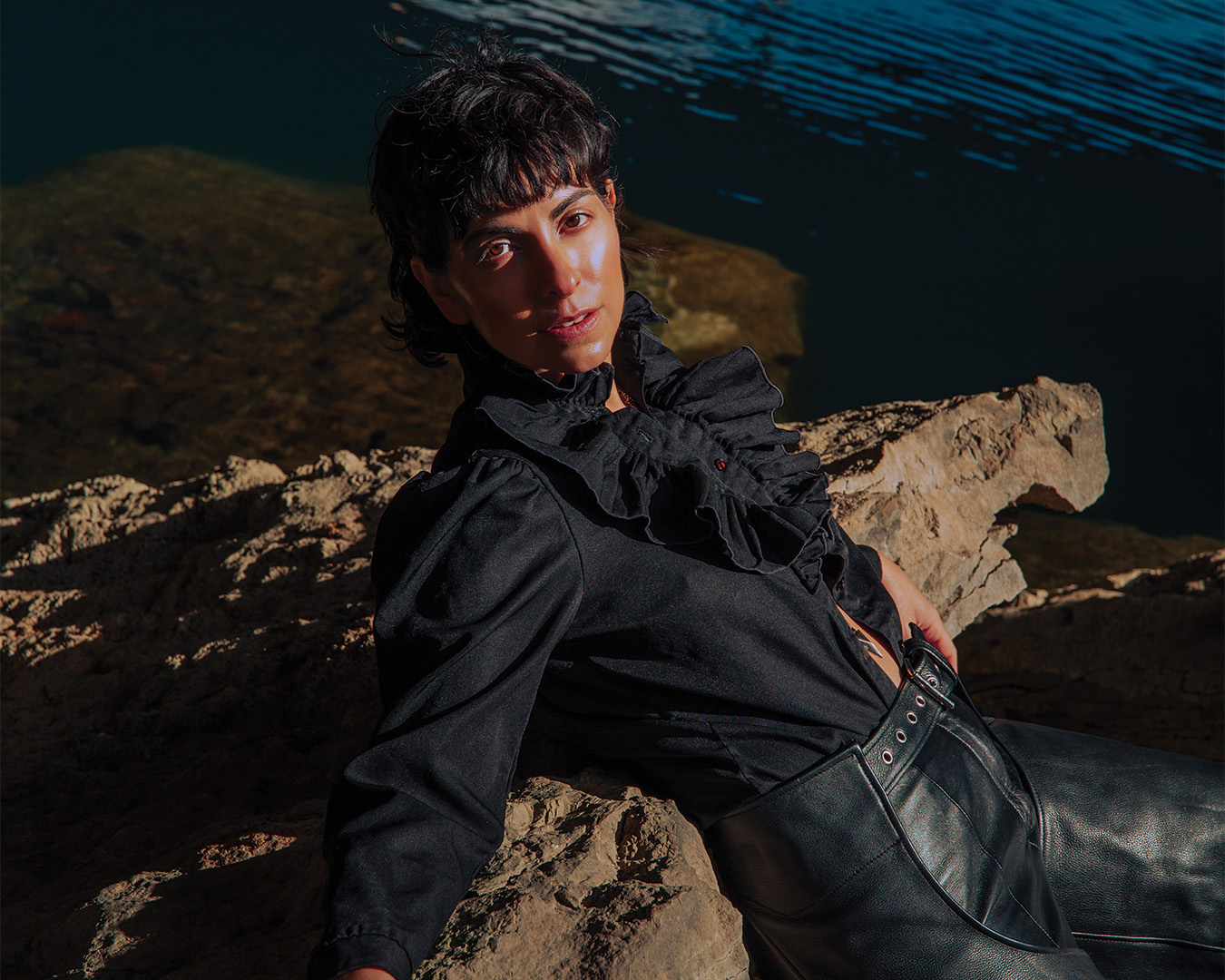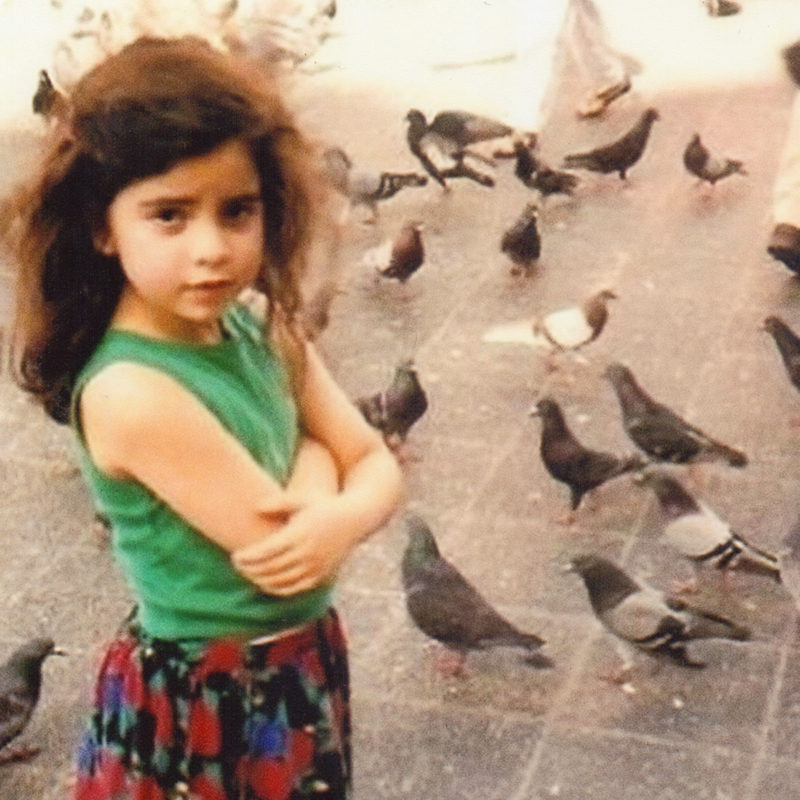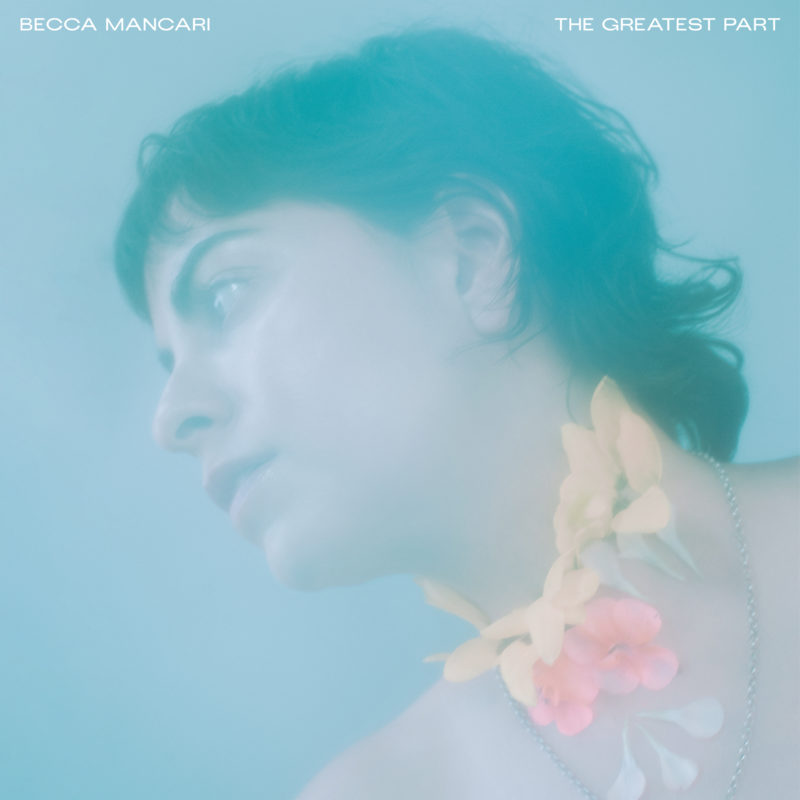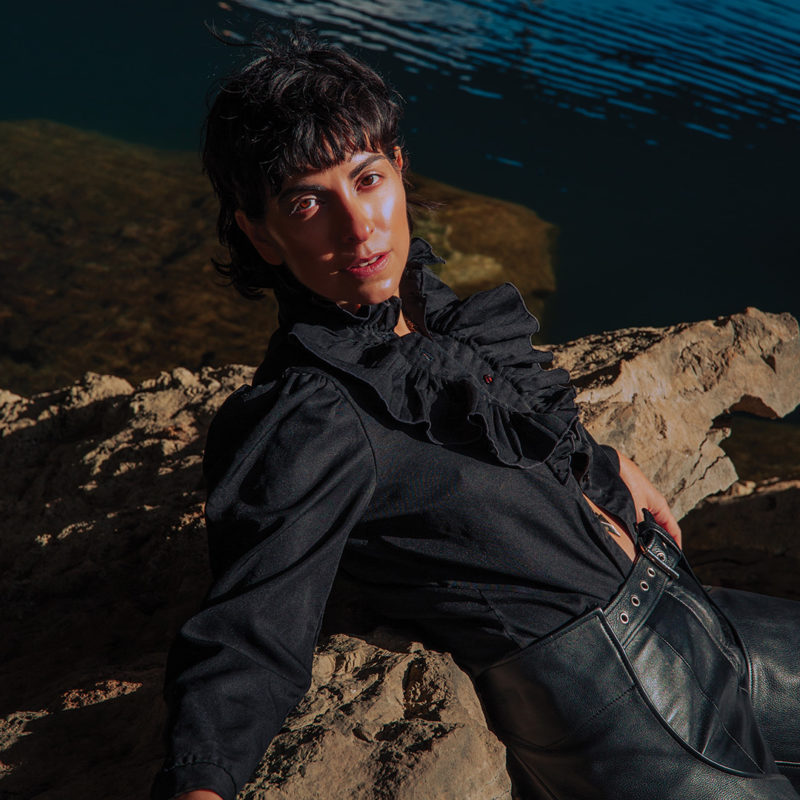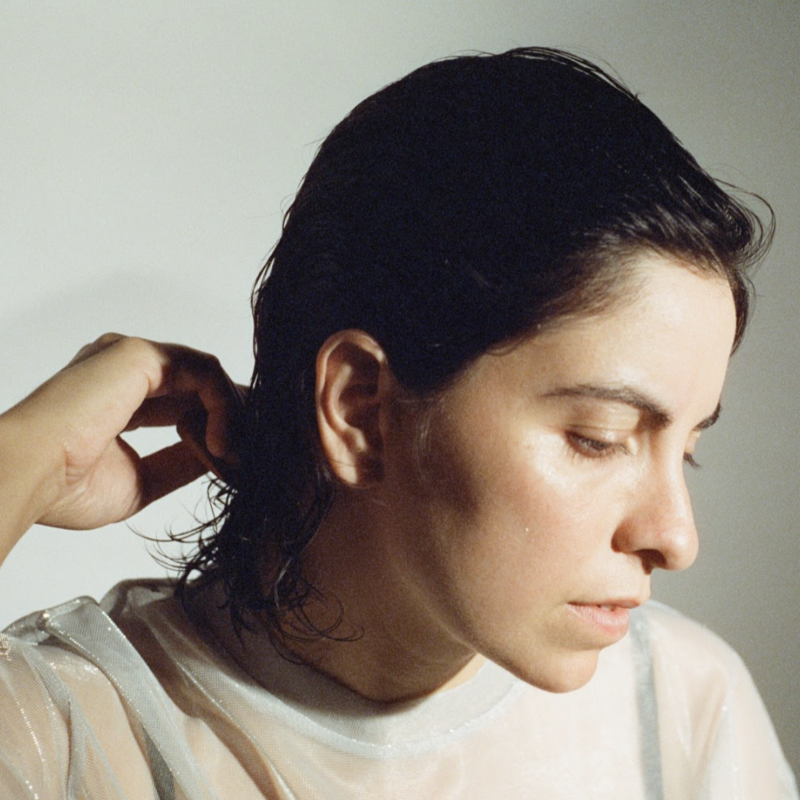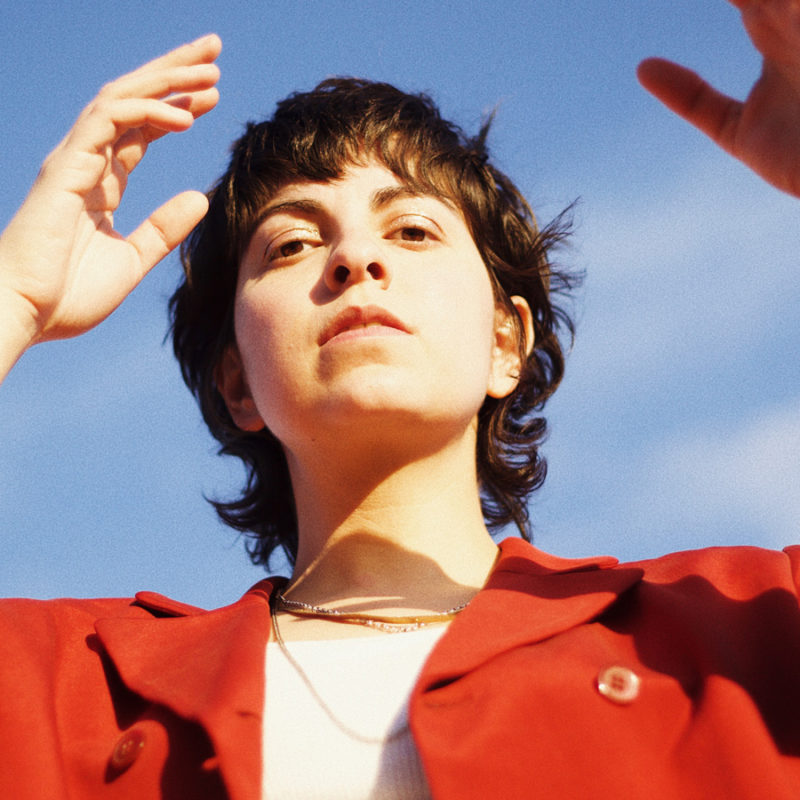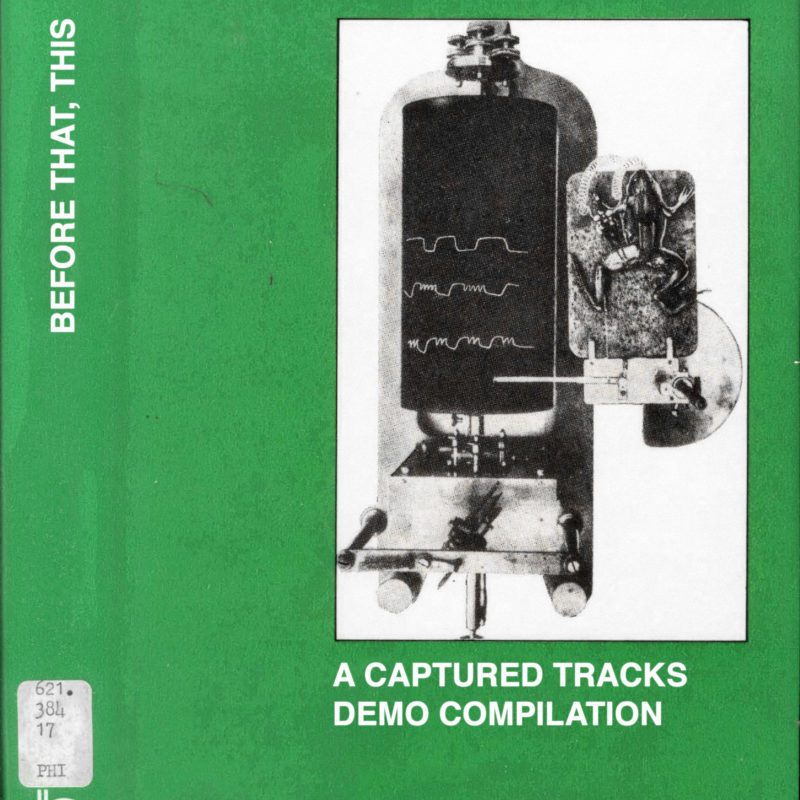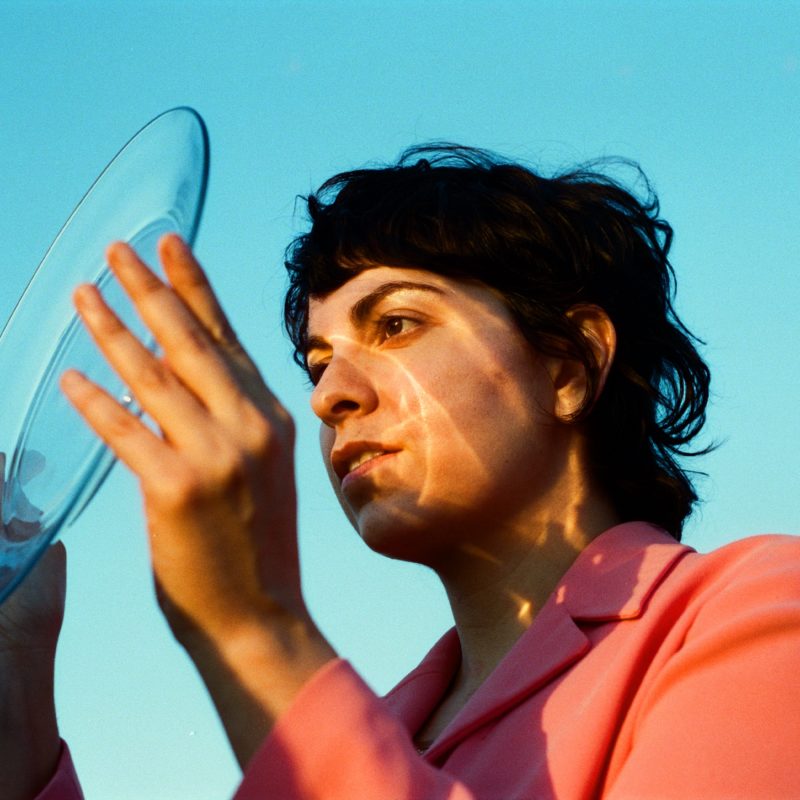More About Becca Mancari:
Initially, Mancari planned to hire a producer on their third LP, just as they had done on earlier records, but a disheartening studio session convinced them they were capable of rendering their vision independently. Close friend and musical ally Juan Solorzano, who has played on all of Mancari’s albums since the debut of Good Woman in 2017, joined them in the studio to co-produce the majority of the record. In addition, Daniel Tashian (Kacey Musgraves, Demi Lovato) co-wrote and co-produced the song “Don’t Close Your Eyes,” encouraging Mancari to track every instrument on the initial demos, and while they had never considered themself a multi-instrumentalist, Mancari took seat on the drum throne working out the skittering percussion of the tune until it hit just right. As much as self-producing this album was an act of resilience and growth in one’s own craft, Mancari brought trusted friends like Brittany Howard, who they play with in Bermuda Triangle, Julien Baker and Zac Farro into the process. “Producing this record was life-giving. It was scary, at first, to be trusted with this role, but I knew I’d only gain more agency and strength over my career through the process,” Mancari says.
Insecurities that had dogged Mancari since childhood couldn’t weather the force of energy in that studio, where they executed decisions with newfound certainty. The title track, “Left Hand,” is named for the Mancari family crest from the Italian region of Calabria in which a left hand holds a dagger aloft. After a lifetime spent feeling like they didn’t belong, Mancari unlocked a perfect metaphor in the crest: “In many cultures children born with a dominant left hand were taught not to use that hand, and were told that using the right hand was ‘normal’ and ‘correct.’ Similarly, queer children are often times told that it’s not ‘normal’ for them to love who they love and that they need to ‘change.’”
Though Mancari has experienced that alienation, “Homesick Honeybee” is a tender ode to their grandfather, whose voicemail opens the track and who was the first member of their family to wholly accept Mancari’s queerness. “When a bee loses its way, it can’t survive without a hive.” Mancari ponders, “It physically dies without its community.” But fortunately, their grandfather was always a supportive and reliable presence. You can hear the confidence and assuredness building in Mancari’s voice as they intone the opening verses over a bed of warm indie synths, and when the chorus hits, any sense of lostness explored in the lyrics is drowned out by the certainty of this confrontation: “How you gonna break my broken heart/ That’s already put back into so many pieces/ I can’t even feel it.”
Ecological processes rely on interdependency and Mancari uses the natural world to emphasize their own reliance on other humans, and on the life-giving Earth itself. On the album’s striking closer, “To Love the Earth,” Mancari sings of a new commitment to an undefined spirituality. “Wanna crown you in Queen Anne’s Lace/ Wanna be rebaptized but in a different kind of way,” they sing. The song sounds like a rainy morning when there is no place to be but home and the slight pitter-patter against the windows brings comfort. Fingerpicked guitars and subtle percussion are overtaken on the chorus, which swells to a point of catharsis as Mancari surrenders: “Wanna love you forever, wanna love you forever.” The “you” is unspecified, applicable to a partner, to a community, to family, to the Earth that cradles us all. “To Love the Earth” leaves us with an overwhelming sense of peace, a feeling so rarely accessed outside of music.
Left Hand is generous in this way; Mancari offers the listener a collection of songs that should be played in moments when we are in need of reassurance and encouragement. No song exemplifies this better than the ebullient track “Over and Over,” which is a reminder to friends that happiness doesn’t need to be fleeting. “I wanted to write a queer pop song that has meat on its bones,” they say. Inspired by one of many reckless and joyful hangs with dear friends in Nashville, the enlivening pop song makes a promise to them, and to the greater community Mancari embraces on this album. “There is something to the feeling/ Head hanging out of the window/ Being ok that we don’t know,” sung on the chorus over a beat replete with congas and shakers. What follows is a promise to anyone who ever feels like the greatest moments of their life are disappearing in the rearview: “We can have it like we used to, over and over and over and over again.”

